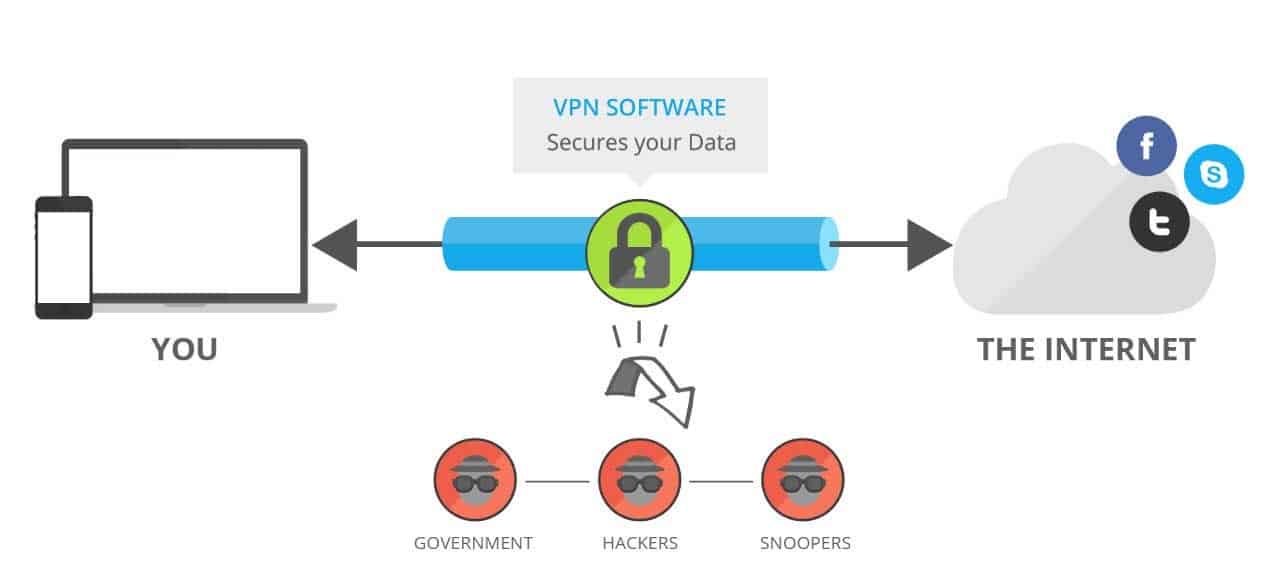Disclosure: Privacy Australia is community-supported. We may earn a commission when you buy a VPN through one of our links. Learn more.
How Do Unlimited Internet Plans Work?
Data plans can become quite expensive. Often, the data you get is inadequate, leaving you without the internet when you need to stay connected. Service providers have finally listened to customers and created unlimited internet plans that will keep you in business without costing a fortune.
Unfortunately some of these plans aren’t really unlimited. Some companies throttle customers who exceed their data cap. That means you can still connect to your network, but your connection will become slow to the point of frustration. How do unlimited plans work, and how can you get the most from your service provider?
What Does Unlimited Really Mean?
When a company offers “unlimited internet” that really means you’ll get all the data you want as long as you follow their rules. The technical definition is internet use without caps or concerns about fair use.

The reality could be one of four scenarios:
- Fast internet if you don’t use it much. This kind of unlimited plan is really only unlimited of you stick to online shopping and limit your devices. You’ll get a cap of perhaps 5 – 10G per month for the price. If you go over that amount, you’ll still be connected, but you’ll have trouble loading dynamic pages, gaming will become insufferably slow, and movies may stop to buffer every few minutes.
- All the data you can slurp through a straw. This type of plan promises unlimited internet by not charging by the byte. However, they will slow down your connection or download speeds if you have higher usage than they’re willing to give you at a flat rate.
- Fast, but filtered. This type of unlimited plan will give you great speeds and reliable connections, but they may filter what content you can access to keep usage down.
- Unlimited, as long as you browse through our affiliates. With this type of plan, you will get unlimited data as long as you use an affiliate of the ISP to access content.
Do You Really Need That Much Data?
Most non-technicians have a mistaken idea of what data is and how much of it gets used in the course of internet browsing or streaming. In order to understand how it works, you need to understand what goes into bringing you internet in the first place.

There are two main factors that control how much internet you have and how much you can use. The first is bandwidth. This relates to the maximum amount of information that travels through your connection in a given period of time, usually measured in megabytes of data per second. How much bandwidth you’ll get depends on the type of connection and the service provider.
For example, an Ethernet connection has an upper limit of 1,000 Mbps, which translates to about 125 megabytes of data per second. A cable modem will give you about 25 Mbps.
Whatever amount of bandwidth you have is shared among devices connected to your network.
Data is the amount of information that you use when you’re on the internet. Only 45 percent of Australians are completely unaware of how much data they use during the average day. In general, browsing or shopping online will use about 2.5 MB per minute. Staying on Facebook with use up about 60 MB in just 30 minutes.
If you limit your social media to that short amount of time per day, you’re using a little over 2 gigabytes per month. Online gaming will eat up about one megabyte per minute, and the average movie stream will use up to 3 gigabytes in an hour.

If your unlimited plan is 5 GB before you get throttled, that doesn’t leave much data for other needs. Cheer up. If you only use your connection to check email, you’re hardly using any data at all.
Factors That Affect Internet Speed and Reliability
Have you ever noticed that sometimes your service is unbearably slow even with unlimited data and a speedy connection? There are several factors that can affect speed that you may not know about.
For example, bandwidth is affected by having too many devices connected to your network. If you’re in one room trying to get a little work done, your spouse is video chatting on his laptop, and the kids are in another room gaming or watching videos. you’re placing too much strain on resources, and everything’s going to run slower.
Your internet speed can also become affected by the tech you put in place to provide internet safety and security. Virtual private networks (VPNs) are great for getting around geo-blocked content and protecting your personal information, but you need to use a server that’s closer to home of you want to maintain the speeds many companies promise when you sign on.

Other resource hogs include apps that run in the background and constant software updates.
How to Optimise Your Connection
You can still have your internet and enjoy it, too, as long as you tweak a few things to optimise your connection.
- Most smartphones have a data tracker in the resource settings on their phones. Find yours and check it daily.
- Limit the number of devices connected to your network at any given time.
- Close any apps on your phone when they’re not in use. You can do this manually on a case-by-case basis or configure your apps to sleep when not in use.
- Clean your cache regularly and use your phone or computer’s built-in cleaning system to purge old file fragments.
- Limit the number of apps on your devices to those you actually need, and remove old or unsupported apps completely rather than just disabling them. Set non-critical updates to manual to avoid auto-updates that fill your storage and strain other resources.
- Read your terms of use and data plan carefully and try to stay within your limits
Final Thoughts
When prioritizing secure and high-speed internet connections, implementing the aforementioned tips can be advantageous. However, it is essential to further enhance your chances by selecting the best Internet Service Provider (ISP) available in your area. Opting for a reputable ISP ensures a reliable connection and minimizes the likelihood of unnecessary disruptions and downtime.
Choosing the best ISP involves considering several factors. Firstly, evaluate the provider’s reputation and track record in terms of service reliability and customer satisfaction. Reading reviews and seeking recommendations from trusted sources can provide valuable insights. Additionally, assess the ISP’s network infrastructure, technology, and coverage to ensure they can deliver the desired level of performance and availability.
Reliability and uptime are crucial aspects to consider. Look for an ISP that offers robust service level agreements (SLAs) guaranteeing minimal downtime and prompt issue resolution. Adequate customer support and technical assistance are equally important, as they can greatly impact the speed and efficiency of problem resolution whenever it arises.
Furthermore, consider the ISP’s pricing plans, contract terms, and any additional services or features they offer. Compare different options to ensure you are getting the best value for your investment while meeting your specific requirements.
By selecting the best ISP in your area, you can stack the odds in your favor and establish a solid foundation for secure, fast, and uninterrupted internet connectivity.



